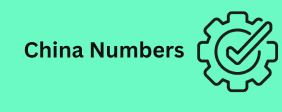AMI have now begun writing for the Huffington Post. Covering the Collaborative Economy in the Business Section. The content will focus on news insights in this rapidly changing market and what it means to corporations. I hope to cross-post the articles when it makes sense (as below). Or simply link to them in my posts. To me, the Huffington Post represents the crowd in terms of the collaboration of media. As they have thousands of writers who comprise a mainstream media network. What does the potential new Google Enables Sharing Mine project mean to the internet?
Here’s a breakdown
On how it could change the world. On June 24, 2013, news leaked out that Google+ is potentially planning to enable their own users to share goods and products with each other so that they don’t have to buy them from name brands at retailers. This action, if taken, will reduce the revenue to brands and corporations that are Germany Phone Number Data locked in old business models of selling. The good news is that there is a solution for those corporations. It’s called the Collaborative Economy. It means that their own business model must change to enable sharing of products and goods.
Eventually to allow customers
To participate in core business functions. I’ve been tracking this trend for several months. Including following a list of over 200 startups that enable a Collaborative Economy, but if Google itself becomes a participant, it will have Belgium Phone Number List some radical ecosystem impacts. First of all, we don’t know if Google will take this step in the near future or not. Google has a number of side projects that always stay behind the scenes, and those that do seem to remain in a perpetual beta mode. Google also compiled a track record of many products that don’t work (which they sunset after a few years).

